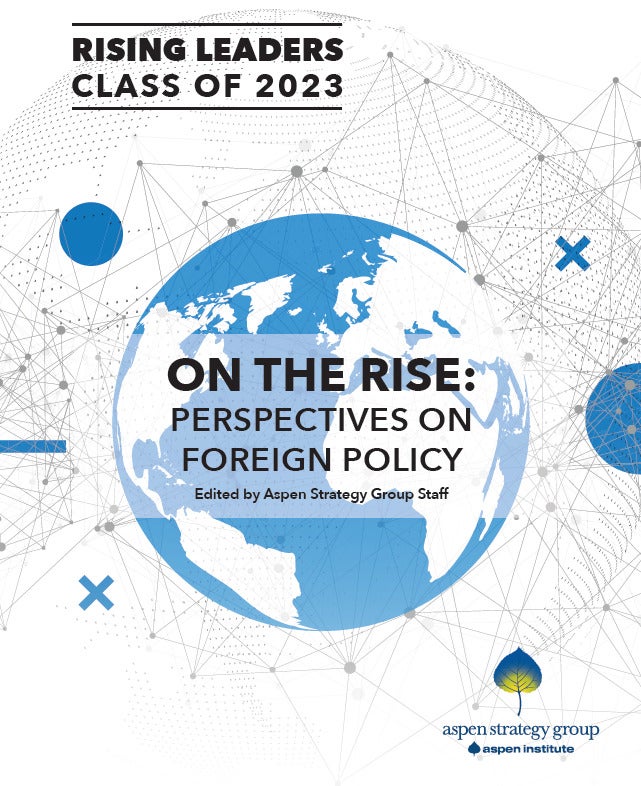Alexandra Roberts is a Scholar at the 2019 Aspen Security Forum.
To understand Russia’s role in Syria, you must know a particular Russian word, Derzhavnost: “great-powerness” or ”unquestionable sphere of influence.” For many Russians this word is no longer synonymous with Russia. Particularly since the break up of the Soviet Union, which measures unfavorably compared with China, who have in a relatively short and peaceful period, become the de facto rising power hegemon, with a booming economy and an increasing sphere of influence. Vladimir Putin, in his role as Russia’s strongman, wants to change this and sees Syria as an opportunity. Despite a weak hand to play, he wants to end the traditional balance of power and alliances and, to reassert Russia’s place in the world.
There are long-standing ties between Moscow and Syria, particularly with the Assads, which lend credence to Russia’s presence. Moreover, disingenuous or not, their argument that they are there for the same reasons as the US and NATO (to stop the spread of jihadist terrorism) has precedent in their grounds for the invasion of Chechnya. Furthermore, by aligning themselves with President Bashar al Assad, the officially recognised leader of Syria, against ISIL, there are several benefits to Russia that Putin considers sufficient justification to counter the risk to their troops.
The lease on the naval base in Tartus, due to end this year, was renewed for a further 49 years in 2017. This is of vital strategic importance for the Russian Navy as it is their only notable facility outside the former Soviet Bloc. Additionally, should relations with Turkey decline to the point where the Bosporus Strait is closed, the Russian Navy and its supply line would be cut off beyond the Black Sea. By having a base of operations from which to launch strikes into Syria, Russia has also been able to project the image of being a strong and capable military power, whilst simultaneously taking advantage of the opportunity to gain fighting proficiency. During previous large-scale, multinational conflicts such as Kosovo or Iraq, Russia had no presence, their only kinetic experience occurring in Georgia and Crimea, further fuelling the idea that they have become marginalized by NATO and its members. Indeed, this projection of military capability has been so successful that Turkey (despite NATO membership) has been negotiating to buy missiles and other arms from them, providing desperately needed income as international sanctions continue squeeze the economy at home.
From the Russian point of view, intervention in Syria has proved highly fruitful. Politically, Moscow has engage in military action without any significant diplomatic ramifications; have fundamentally guaranteed Syria’s support for them in the UN; maintained relations with Iran and Saudi Arabia and; indeed, more recently, offered to act as an intermediary between Israel and the Syria to deescalate tensions, even providing “neutral” forces along the Israeli-Syrian border. By engaging in Syria, Russia has gained influence across the region. This, in conjunction with their propensity to construct or manipulate existing problems elsewhere, will allow Russia, Putin hopes, to exert influence over the global strategic agenda by destabilizing the current power balance.
The views and opinions of the author are her own and do not necessarily reflect those of the Aspen Institute.


